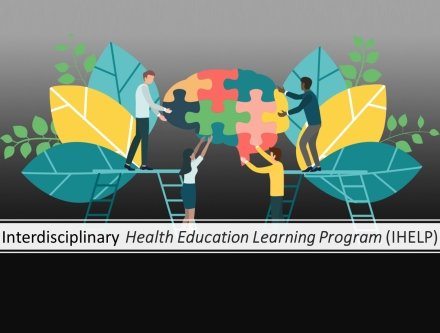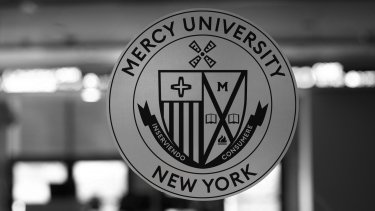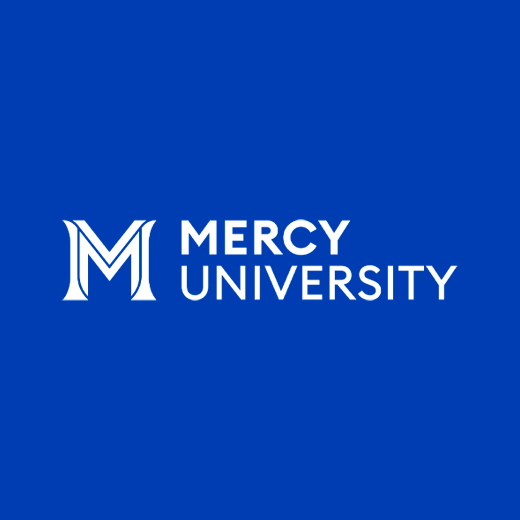
School Counseling
- 60 Credits
- School of Social and Behavioral Sciences
- Bronx
- Westchester

School Counseling Overview
The Master of Science Degree in School Counseling is designed to prepare you to work in a school setting as a school counselor and work directly with teachers, parents, and administrators in K-12 settings. You will also be prepared to recognize and respond to students, family, and community social and emotional needs.
This program prepares future school counselors to meet the challenging times of diverse K-12 students today and apply and evaluate an evidence-based comprehensive school counseling program. Completing the 60-credit School Counselor program will earn your initial certification as a school counselor.
Join us for our Upcoming Graduate Events
Join us for an upcoming graduate admissions event to learn more about our School Counseling program and explore how Mercy can help you meet your goals.

Career Opportunities
The Master of Science Degree in School Counseling qualifies students for employment at the elementary, middle school, and high school levels in rural, urban and suburban areas. School counselors are an integral part of the school community collaborating with teachers and other health professionals in the school to ensure the success and wellbeing of K-12 students. A degree in school counseling will also prepare students to work in state education departments and not-for-profit agencies that support college and career readiness.
Want More Info?
We'd like to hear from you! Get more information.

HEART Grant at Mercy University
The HEART Grant(Helping Evidence-Based Advocates with Responsive Training) is designed to help get trained school counselors where they are needed most.
Participants in the program are eligible or stipends tuition relief to help with clinical placements during their second year. Participants will also have access to experiential training through a service-learning project.

IHELP at Mercy University
Mercy University is here to help our students and communities succeed. The new Interdisciplinary Health Education Learning Program (IHELP) fellowship aims to expand internship opportunities that provide services for children, adolescents, and transitional-aged youth who are at risk for behavioral health disorders in high need and high demand areas for graduate Fellows in Mercy's School Counseling, Mental Health Counseling, Marriage and Family Therapy, or Occupational Therapy programs.
Admissions Requirements
- Baccalaureate degree from an accredited college or university with a grade point average (GPA) of 3.00 or higher. Applicants with a GPA lower than 3.0 may be considered for provisional acceptance.
- Two (2) detailed written letters of recommendation from instructors in the major area of study or professional contacts. One letter must be from a professor.
- We cannot accept references from sources such as the applicant’s personal clergy, current or past counselor/therapist, colleagues outside of counseling, human services professions, or friends/relatives.
- An up-to-date Resume
- In an 800-1000-word personal statement, please address the following questions:
- What does it mean to be a school counselor?
- What influenced you to want to be a school counselor?
- What are your three biggest strengths? Your three biggest challenges? How will your strengths and challenges impact you as a student in the school counseling program and as a future school counselor? If your GPA is below a 3.0, this must be one of your challenges that you discuss.
- What influenced you to apply to Mercy University?
-
Admissions materials for returning graduate counseling students:
-
Three 15-week semesters leave -transcript, essay
-
Two years – Transcript, current resume and essay
-
Three+ years – transcript, current resume, essay, and one recommendation
-
Four+ years - all admission material items
-
Program Accreditation
The Master of Science in School Counseling is accredited by the Council for the Accreditation of Educator Preparation, 1140 19th St NW, Suite 400 Washington, DC 20036.

Additional Counseling Certifications
If you're interested in mental heath, Mercy's School Counseling Degree will earn you the license that has become the new entry-level standard for the field.
If you're interested in learning about alcohol and substance abuse and wanting to make a difference, an Advanced Certificate in Alcohol/Substance Abuse Counseling (CASAC) will help you develop prevention and intervention strategies for students and families.
Frequently Asked Questions
It take 3 years to complete the program if you are a full time student.
First decide whether you wish to pursue school counseling or to counsel in an agency or hospital setting. This will help you decide upon a Master's Degree in School Counseling or a Master's Degree in Mental Health Counseling. This will help you decide what type of counseling you want to do in order to focus your work activities, practicum and internship courses.
The M.S. in School Counseling will prepare you to become a school counselor in urban and suburban schools. The M.S. in Mental Health Counseling will prepare you to become a mental health counselor in other public and private agencies.
Admission to the graduate program requires:
- Two professional letters of recommendation,
- An 800-1000-word personal statement answering the following questions:
- What does it mean to be a school counselor?
- What influenced you to want to be a school counselor?
- What are your three biggest strengths?
- Your three biggest challenges?
- How will your strengths and challenges impact you as a student in the school counseling program and as a future school counselor? (If your GPA is below a 3.0, this must be one of your challenges that you discuss.)
- What influenced you to apply to Mercy University?
- A résumé,
- Completion of a baccalaureate degree or its equivalent from an approved institution,
- An undergraduate cumulative GPA of 3.0 or above (on a 4.0 scale).
If you do not meet all these requirements you may be admitted on a provisional basis until you have demonstrated your ability to do adequate graduate-level work by earning grades of B or better in at least the first 18 credits.
No. Certification is done by specific certifying bodies like the National Board of Certified Counselors (NBCC). Licensure is established by individual states. Some states (such as Virginia and Tennessee) require 60 graduate hours for licensure. However, most of these will allow you to graduate with a 48 credit degree, and then take 12 post-graduate credits. You should read the licensing law for the state(s) in which you wish to become licensed to ensure that your academic work will meet those requirements.
Program Details & Curriculum
Level I (Basic foundational knowledge, theories and skills): 18 Credits
Level II (Intermediate pre-internship prep, social basis of behavior and assessment): 24 Credits
Level III (Advanced specialty concentration and internship): 18 Credits
Total: 60 Credits
For a full curriculum listing visit our catalog.
Graduates of the Master of Science in School Counseling will be prepared to assume a professional school counseling role in a school setting. Graduates will be expected to do the following:
- Identify and apply the American School Counseling Association standards to qualify for certification as a School Counselor in New York State.
- Demonstrate mastery of Human Growth and Development, Social and Cultural Foundations, Theories of Counseling, Groups, Lifestyle and Career Development, Appraisal, Research and Program Evaluation, and Professional Orientation and Ethics.
- Identify, explain, and respond to concerns, issues, and challenges relevant to today’s students.
- Define, explain, and apply counseling, assessment, advocacy, prevention, and intervention techniques to assist students.
- Apply current knowledge and research from social and behavioral sciences, including the use of technology, to the practice of counseling in a school setting.
- Identify and explain the impact of cultural diversity on counseling techniques and make appropriate applications.
ATTN School Counseling Students:
The New York State Department of Education has approved a new regulation for school counselor preparation programs that goes into effect Fall 2021. The program will move from 48 to 60 credit hours. This changes the certification requirements as well. If students have met all requirements for provisional certification before 2/1/2023, but have not completed their preparation program, and they wish to be provisionally certified, they must apply for certification through the Office of Teaching Initiatives- Individual Evaluation pathway. Therefore, those who enter into the program Summer/Fall 2020, then will be required to adhere to the new regulation standards, if they are unable to be provisionally certified by Feb 1, 2023.
Download a copy of the sequence map for:
ARCHIVE
- 2022 - 2023 M.S. School Counseling - 4 Year
- 2022 - 2023 M.S. School Counseling - 3 Year
- 2021 - 2022 M.S. School Counseling
- 2020 - 2021 M.S. Counseling
- 2019 - 2020 M.S. Counseling


